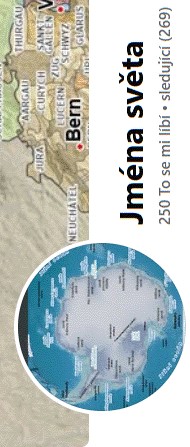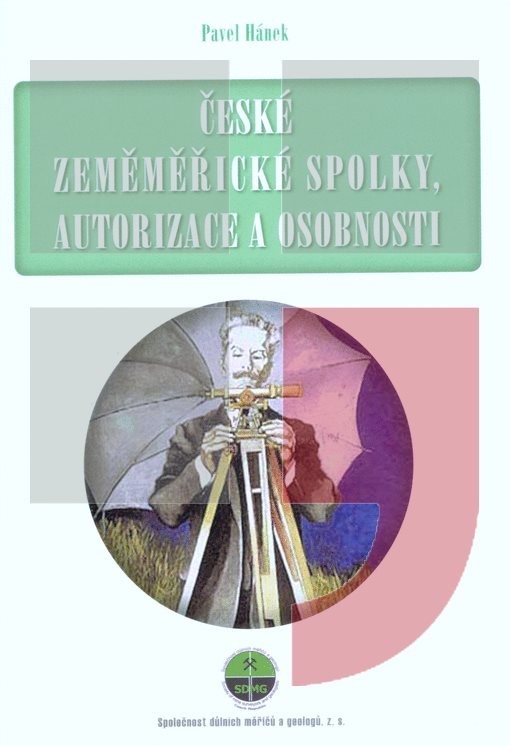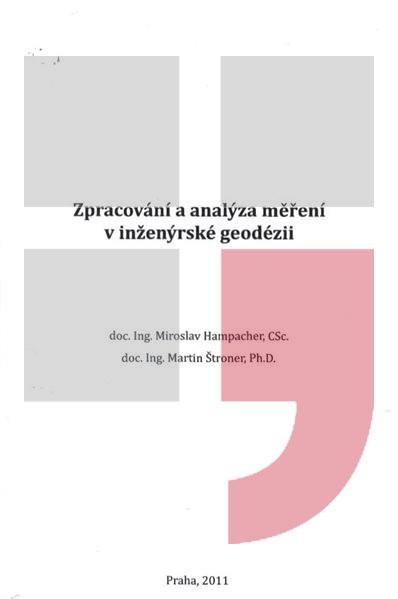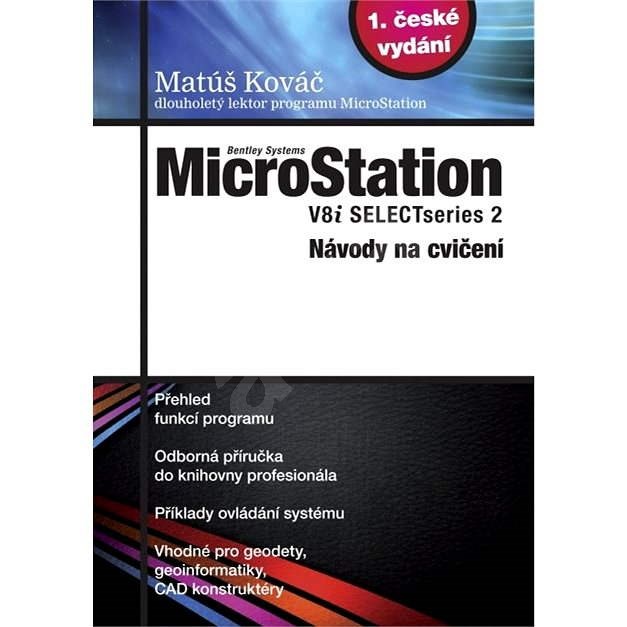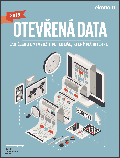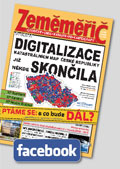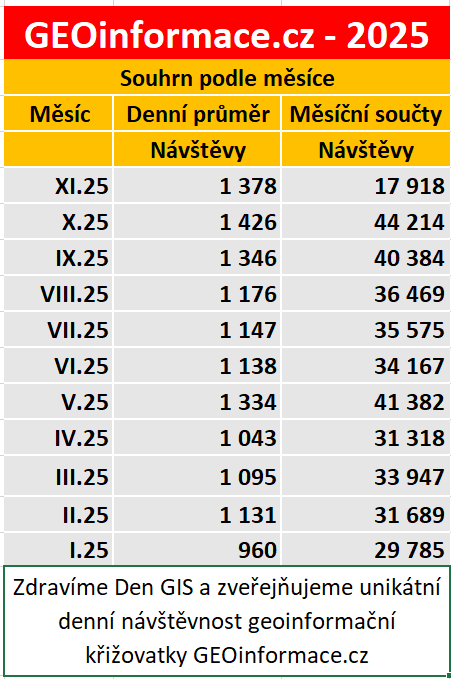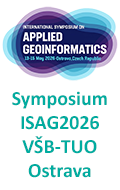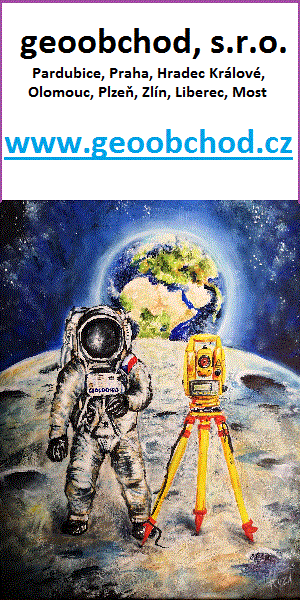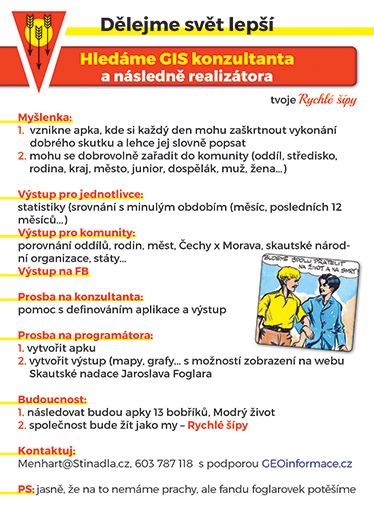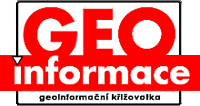zprávy
zdroje zpráv:Rada/odborný rada v oddělení podpory informačních a komunikačních technologií
10.7.2024 13:27 ČÚZK /Urady/Katastralni-urady/Katastralni-urady/Katastralni-urad-pro-Jihomoravsky-kraj/Uredni-deska/Oznameni-a-jina-uredni-sdeleni/Volna-mista/DMS/Rada-odborny-rada-v-oddeleni-podpory-informacnich-Odborný referent v oddělení obnovy katastrálního operátu č.2 v technickém odboru
10.7.2024 13:24 ČÚZK - předpisy a opatření Katastrální úřad pro Jihomoravský kraj - technický odborvypisuje výběrové řízení na místo
Odborný referent v oddělení obnovy katastrálního operátu č.2 v technickém odboru
Odborný referent v oddělení obnovy katastrálního operátu č.2 v technickém odboru
10.7.2024 13:24 ČÚZK - volná místa Katastrální úřad pro Jihomoravský kraj - technický odbor vypisuje výběrové řízení na místo Odborný referent v oddělení obnovy katastrálního operátu č.2 v technickém odboruOdborný referent v oddělení obnovy katastrálního operátu č.2 v technickém odboru
10.7.2024 13:24 ČÚZK - předpisy a opatření Katastrální úřad pro Jihomoravský kraj technická sekcevypisuje výběrové řízení na místo
Odborný referent v oddělení obnovy katastrálního operátu č.2 v technickém odboru
Odborný referent v oddělení obnovy katastrálního operátu č.2 v technickém odboru
10.7.2024 13:24 ČÚZK /Urady/Katastralni-urady/Katastralni-urady/Katastralni-urad-pro-Jihomoravsky-kraj/Uredni-deska/Oznameni-a-jina-uredni-sdeleni/Volna-mista/DMS/Odborny-referent-v-oddeleni-obnovy-katastralniho-oOdborný referent v oddělení obnovy katastrálního operátu č.2 v technickém odboru
10.7.2024 13:24 ČÚZK - volná místa Katastrální úřad pro Jihomoravský kraj technická sekce vypisuje výběrové řízení na místo Odborný referent v oddělení obnovy katastrálního operátu č.2 v technickém odboruOdborný referent/vrchní referent v oddělení obnovy katastrálního operátu č.1 v technickém odboru
10.7.2024 12:51 ČÚZK - předpisy a opatření Katastrální úřad pro Jihomoravský kraj - technický odborvypisuje výběrové řízení na místo
Odborný referent/vrchní referent v oddělení obnovy katastrálního operátu č.1 v technickém odboru
Odborný referent/vrchní referent v oddělení obnovy katastrálního operátu č.1 v technickém odboru
10.7.2024 12:51 ČÚZK /Urady/Katastralni-urady/Katastralni-urady/Katastralni-urad-pro-Jihomoravsky-kraj/Uredni-deska/Oznameni-a-jina-uredni-sdeleni/Volna-mista/DMS/Odborny-referent-vrchni-referent-v-oddeleni-obnovyOdborný referent/vrchní referent v oddělení obnovy katastrálního operátu č.1 v technickém odboru
10.7.2024 12:51 ČÚZK - volná místa Katastrální úřad pro Jihomoravský kraj technická sekce vypisuje výběrové řízení na místo Odborný referent/vrchní referent v oddělení obnovy katastrálního operátu č.1 v technickém odboruOdborný referent/vrchní referent v oddělení obnovy katastrálního operátu č.1 v technickém odboru
10.7.2024 12:51 ČÚZK - volná místa Katastrální úřad pro Jihomoravský kraj - technický odbor vypisuje výběrové řízení na místo Odborný referent/vrchní referent v oddělení obnovy katastrálního operátu č.1 v technickém odboruOdborný referent/vrchní referent v oddělení obnovy katastrálního operátu č.1 v technickém odboru
10.7.2024 12:51 ČÚZK - předpisy a opatření Katastrální úřad pro Jihomoravský kraj technická sekcevypisuje výběrové řízení na místo
Odborný referent/vrchní referent v oddělení obnovy katastrálního operátu č.1 v technickém odboru
Vrchní referent/rada v oddělení obnovy katastrálního č.4 v technickém odboru
10.7.2024 12:49 ČÚZK - předpisy a opatření Katastrální úřad pro Jihomoravský kraj - technický odborvypisuje výběrové řízení na místo
Vrchní referent/rada v oddělení obnovy katastrálního č.4 v technickém odboru
Vrchní referent/rada v oddělení obnovy katastrálního č.4 v technickém odboru
10.7.2024 12:49 ČÚZK - volná místa Katastrální úřad pro Jihomoravský kraj - technický odbor vypisuje výběrové řízení na místo Vrchní referent/rada v oddělení obnovy katastrálního č.4 v technickém odboruVrchní referent/rada v oddělení obnovy katastrálního č.4 v technickém odboru
10.7.2024 12:49 ČÚZK /Urady/Katastralni-urady/Katastralni-urady/Katastralni-urad-pro-Jihomoravsky-kraj/Uredni-deska/Oznameni-a-jina-uredni-sdeleni/Volna-mista/DMS/Vrchni-referent-rada-v-oddeleni-obnovy-katastr-(3)Vrchní referent/rada v oddělení obnovy katastrálního operátu č.4 v technickém odboru
10.7.2024 12:49 ČÚZK - volná místa Katastrální úřad pro Jihomoravský kraj - technický odbor vypisuje výběrové řízení na místo Vrchní referent/rada v oddělení obnovy katastrálního operátu č.4 v technickém odboruVrchní referent/rada v oddělení obnovy katastrálního č.4 v technickém odboru
10.7.2024 12:49 ČÚZK - předpisy a opatření Katastrální úřad pro Jihomoravský kraj technická sekcevypisuje výběrové řízení na místo
Vrchní referent/rada v oddělení obnovy katastrálního č.4 v technickém odboru
Vrchní referent/rada v oddělení obnovy katastrálního operátu č.4 v technickém odboru
10.7.2024 12:49 ČÚZK /Urady/Katastralni-urady/Katastralni-urady/Katastralni-urad-pro-Jihomoravsky-kraj/Uredni-deska/Oznameni-a-jina-uredni-sdeleni/Volna-mista/DMS/Vrchni-referent-rada-v-oddeleni-obnovy-katastr-(3)Vrchní referent/rada v oddělení obnovy katastrálního č.4 v technickém odboru
10.7.2024 12:49 ČÚZK - předpisy a opatření Katastrální úřad pro Jihomoravský kraj technická sekcevypisuje výběrové řízení na místo
Vrchní referent/rada v oddělení obnovy katastrálního operátu č.4 v technickém odboru
Vrchní referent/rada v oddělení obnovy katastrálního č.4 v technickém odboru
10.7.2024 12:49 ČÚZK - volná místa Katastrální úřad pro Jihomoravský kraj technická sekce vypisuje výběrové řízení na místo Vrchní referent/rada v oddělení obnovy katastrálního č.4 v technickém odboruVrchní referent/rada v oddělení obnovy katastrálního operátu č.4 v technickém odboru
10.7.2024 12:49 ČÚZK - předpisy a opatření Katastrální úřad pro Jihomoravský kraj - technický odborvypisuje výběrové řízení na místo
Vrchní referent/rada v oddělení obnovy katastrálního operátu č.4 v technickém odboru
Vrchní referent/rada v oddělení obnovy katastrálního operátu č.3 v technickém odboru
10.7.2024 12:45 ČÚZK - volná místa Katastrální úřad pro Jihomoravský kraj technická sekce vypisuje výběrové řízení na místo Vrchní referent/rada v oddělení obnovy katastrálního operátu č.3 v technickém odboruVrchní referent/rada v oddělení obnovy katastrálního operátu č.3 v technickém odboru
10.7.2024 12:45 ČÚZK - volná místa Katastrální úřad pro Jihomoravský kraj - technický odbor vypisuje výběrové řízení na místo Vrchní referent/rada v oddělení obnovy katastrálního operátu č.3 v technickém odboruVrchní referent/rada v oddělení obnovy katastrálního operátu č.3 v technickém odboru
10.7.2024 12:45 ČÚZK - předpisy a opatření Katastrální úřad pro Jihomoravský kraj - technický odborvypisuje výběrové řízení na místo
Vrchní referent/rada v oddělení obnovy katastrálního operátu č.3 v technickém odboru
Vrchní referent/rada v oddělení obnovy katastrálního operátu č.3 v technickém odboru
10.7.2024 12:45 ČÚZK /Urady/Katastralni-urady/Katastralni-urady/Katastralni-urad-pro-Jihomoravsky-kraj/Uredni-deska/Oznameni-a-jina-uredni-sdeleni/Volna-mista/DMS/Vrchni-referent-rada-v-oddeleni-obnovy-katastr-(2)Vrchní referent/rada v oddělení obnovy katastrálního operátu č.3 v technickém odboru
10.7.2024 12:45 ČÚZK - předpisy a opatření Katastrální úřad pro Jihomoravský kraj technická sekcevypisuje výběrové řízení na místo
Vrchní referent/rada v oddělení obnovy katastrálního operátu č.3 v technickém odboru
Vrchní referent/rada v oddělení obnovy katastrálního operátu č.2 v technickém odboru
10.7.2024 12:44 ČÚZK - předpisy a opatření Katastrální úřad pro Jihomoravský kraj - technický odborvypisuje výběrové řízení na místo
Vrchní referent/rada v oddělení obnovy katastrálního operátu č.2 v technickém odboru
Vrchní referent/rada v oddělení obnovy katastrálního operátu č.2 v technickém odboru
10.7.2024 12:44 ČÚZK - volná místa Katastrální úřad pro Jihomoravský kraj technická sekce vypisuje výběrové řízení na místo Vrchní referent/rada v oddělení obnovy katastrálního operátu č.2 v technickém odboruVrchní referent/rada v oddělení obnovy katastrálního operátu č.2 v technickém odboru
10.7.2024 12:44 ČÚZK - předpisy a opatření Katastrální úřad pro Jihomoravský kraj technická sekcevypisuje výběrové řízení na místo
Vrchní referent/rada v oddělení obnovy katastrálního operátu č.2 v technickém odboru
Vrchní referent/rada v oddělení obnovy katastrálního operátu č.2 v technickém odboru
10.7.2024 12:44 ČÚZK /Urady/Katastralni-urady/Katastralni-urady/Katastralni-urad-pro-Jihomoravsky-kraj/Uredni-deska/Oznameni-a-jina-uredni-sdeleni/Volna-mista/DMS/Vrchni-referent-rada-v-oddeleni-obnovy-katastr-(1)Vrchní referent/rada v oddělení obnovy katastrálního operátu č.2 v technickém odboru
10.7.2024 12:44 ČÚZK - volná místa Katastrální úřad pro Jihomoravský kraj - technický odbor vypisuje výběrové řízení na místo Vrchní referent/rada v oddělení obnovy katastrálního operátu č.2 v technickém odboruVrchní referent/rada v oddělení obnovy katastrálního operátu č.1 v technickém odboru
10.7.2024 12:39 ČÚZK - předpisy a opatření Katastrální úřad pro Jihomoravský kraj technická sekcevypisuje výběrové řízení na místo
Vrchní referent/rada v oddělení obnovy katastrálního operátu č.1 v technickém odboru
Vrchní referent/rada v oddělení obnovy katastrálního operátu č.1 v technickém odboru
10.7.2024 12:39 ČÚZK /Urady/Katastralni-urady/Katastralni-urady/Katastralni-urad-pro-Jihomoravsky-kraj/Uredni-deska/Oznameni-a-jina-uredni-sdeleni/Volna-mista/DMS/Vrchni-referent-rada-v-oddeleni-obnovy-katastralniVrchní referent/rada v oddělení obnovy katastrálního operátu č.1 v technickém odboru
10.7.2024 12:39 ČÚZK - volná místa Katastrální úřad pro Jihomoravský kraj technická sekce vypisuje výběrové řízení na místo Vrchní referent/rada v oddělení obnovy katastrálního operátu č.1 v technickém odboruVrchní referent/rada v oddělení obnovy katastrálního operátu č.1 v technickém odboru
10.7.2024 12:39 ČÚZK - volná místa Katastrální úřad pro Jihomoravský kraj - technický odbor vypisuje výběrové řízení na místo Vrchní referent/rada v oddělení obnovy katastrálního operátu č.1 v technickém odboruVrchní referent/rada v oddělení obnovy katastrálního operátu č.1 v technickém odboru
10.7.2024 12:39 ČÚZK - předpisy a opatření Katastrální úřad pro Jihomoravský kraj - technický odborvypisuje výběrové řízení na místo
Vrchní referent/rada v oddělení obnovy katastrálního operátu č.1 v technickém odboru
Pozvánka na konferenci Inspirujme se 2024
10.7.2024 9:08 GISportal.cz
Česká informační agentura životního prostředí a Ministerstvo životného prostredia Slovenskej republiky vás zvou ve dnech 20. – 21. 11. 2024 na Štrbské Pleso do hotelu Panorama, kde se uskuteční tradiční konference Inspirujme se 2024. Podrobné informace naleznete na konferenční stránce. REGISTRACE, PŘIHLAŠOVÁNÍ PREZENTACÍ A POSTERŮ Účast na akci je pro všechny registrované účastníky bezplatná – do naplnění kapacity. Registrační formulář […]
The post Pozvánka na konferenci Inspirujme se 2024 appeared first on GISportal.cz.
Pozvánka na konferenci Inspirujme se 2024
10.7.2024 9:08 GISportal.cz
Česká informační agentura životního prostředí a Ministerstvo životného prostredia Slovenskej republiky vás zvou ve dnech 20. – 21. 11. 2024 na Štrbské Pleso do hotelu Panorama, kde se uskuteční tradiční konference Inspirujme se 2024. Podrobné informace naleznete na konferenční stránce. REGISTRACE, PŘIHLAŠOVÁNÍ PREZENTACÍ A POSTERŮ Účast na akci je pro všechny registrované účastníky bezplatná – do naplnění kapacity. Registrační formulář […]
The post Pozvánka na konferenci Inspirujme se 2024 appeared first on GISportal.cz.
Krátka správa č. 29/2024
9.7.2024 14:56 Komora geodetů a kartografů SRThe post Krátka správa č. 29/2024 appeared first on Komora geodetov a kartografov.
31. slovenské geodetické dni
9.7.2024 14:19 Komora geodetů a kartografů SRThe post 31. slovenské geodetické dni appeared first on Komora geodetov a kartografov.
Patch pro 16.80
9.7.2024 11:46 GEPROPřipravili jsme pro Vás balíček oprav GAD DTM (geodetická aktualizační dokumentace digitální technické mapy) pro verzi 16.80. Stahovat je můžete z obvyklého umístění na našem download serveru. Tento balíček je primárně určen těm geodetům, kteří odesílají data GAD.Postup instalace je jednoduchý – po rozbalení (jde o ZIP soubor) všechny soubory zkopírujte do již existujícícho podadresáře […]
Článek Patch pro 16.80 se nejdříve objevil na GEPRO.
Pozvánka na konferenci Inspirujme se 2024
9.7.2024 11:44 CENIA - národní geoportál INSPIRE Česká informační agentura životního prostředí a Ministerstvo životného prostredia Slovenskej republiky vás zvou ve dnech 20. – 21. 11. 2024 na Štrbské Pleso do hotelu Panorama, kde se uskuteční tradiční konference Inspirujme se 2024. Podrobné informace naleznete na konferenční stránce. REGISTRACE, PŘIHLAŠOVÁNÍ PREZENTACÍ A POSTERŮ Účast na akci je pro všechny registrované účastníky bezplatná - do...20240709_Rada / odborný rada oddělení dokumentace KN
9.7.2024 10:48 ČÚZK - předpisy a opatření Katastrální úřad pro Středočeský kraj - Katastrální pracoviště Praha-západ Vyhlášení výběrového řízení: Rada / odborný rada oddělení dokumentace KN V části "Úřední deska", v sekci "Oznámení a jiná úřední sdělení" bylo vystaveno "Oznámení o vyhlášení výběrového řízení na obsazení služebního místa Rada / odborný rada oddělení dokumentace KN"20250328_Referent oddělení aktualizace PI KN I.
9.7.2024 10:48 ČÚZK /Urady/Katastralni-urady/Katastralni-urady/Katastralni-urad-pro-Stredocesky-kraj/Katastralni-pracoviste/KP-Praha-zapad/O-uradu/Aktuality/20210922_Odborny-referent-oddeleni-aktualizace-(1)20240709_Rada / odborný rada oddělení dokumentace KN
9.7.2024 10:48 ČÚZK /Urady/Katastralni-urady/Katastralni-urady/Katastralni-urad-pro-Stredocesky-kraj/Katastralni-pracoviste/KP-Praha-zapad/O-uradu/Aktuality/20210922_Odborny-referent-oddeleni-aktualizace-(1)20250328_Referent oddělení aktualizace PI KN I.
9.7.2024 10:48 ČÚZK - předpisy a opatření Katastrální úřad pro Středočeský kraj - Katastrální pracoviště Praha-západ Vyhlášení výběrového řízení: Referent oddělení aktualizace PI KN I. V části "Úřední deska", v sekci "Oznámení a jiná úřední sdělení" bylo vystaveno "Oznámení o vyhlášení výběrového řízení na obsazení služebního místa Referent oddělení aktualizace PI KN I."Rada / odborný rada oddělení dokumentace KN
9.7.2024 10:47 ČÚZK - předpisy a opatření Katastrální úřad pro Středočeský kraj Katastrální pracoviště Praha-západvypisuje výběrové řízení na místo
Rada / odborný rada oddělení dokumentace KN
Rada / odborný rada oddělení dokumentace KN
9.7.2024 10:47 ČÚZK - volná místa Katastrální úřad pro Středočeský kraj Katastrální pracoviště Praha-západ vypisuje výběrové řízení na místo Rada / odborný rada oddělení dokumentace KNRada / odborný rada oddělení dokumentace KN
9.7.2024 10:47 ČÚZK /Urady/Katastralni-urady/Katastralni-urady/Katastralni-urad-pro-Stredocesky-kraj/Uredni-deska/Oznameni-a-jina-uredni-sdeleni/Volna-mista/DMS/Rada-odborny-rada-oddeleni-dokumentace-KN20240709_Odborný / vrchní referent oddělení aktualizace PI KN I.
9.7.2024 10:13 ČÚZK - předpisy a opatření Katastrální úřad pro Středočeský kraj - Katastrální pracoviště Praha-východ Vyhlášení výběrového řízení: Odborný / vrchní referent oddělení aktualizace PI KN I. V části "Úřední deska", v sekci "Oznámení a jiná úřední sdělení" bylo vystaveno "Oznámení o vyhlášení výběrového řízení na obsazení služebního místa Odborný / vrchní referent oddělení aktualizace PI KN I."20240709_Odborný / vrchní referent oddělení aktualizace PI KN I.
9.7.2024 10:13 ČÚZK /Urady/Katastralni-urady/Katastralni-urady/Katastralni-urad-pro-Stredocesky-kraj/Katastralni-pracoviste/KP-Praha-vychod/O-uradu/Aktuality/20210922_Odborny-referent-oddeleni-aktualizace-(1)20240709-VŘ KP Hustopeče
9.7.2024 10:04 ČÚZK - předpisy a opatření Český úřad zeměměřický a katastrálnízveřejnil novou aktualitu: Oznámení o vyhlášení výběrového řízení na obsazení služebního místa ředitele/ředitelky Katastrálního pracoviště Hustopeče.
20240709-VŘ KP Hustopeče
9.7.2024 10:04 ČÚZK - předpisy a opatření Český úřad zeměměřický a katastrálnízveřejnil novou aktualitu: Oznámení o vyhlášení výběrového řízení na obsazení služebního místa ředitele/ředitelky Katastrálního pracoviště Hustopeče.
20240709-VŘ KP Hustopeče
9.7.2024 10:04 ČÚZK - předpisy a opatření Český úřad zeměměřický a katastrální zveřejnil novou aktualitu: Oznámení o vyhlášení výběrového řízení na obsazení služebního místa ředitele/ředitelky Katastrálního pracoviště Hustopeče.20240709-VŘ KP Hustopeče
9.7.2024 10:04 ČÚZK - aktuality v resortu Oznámení o vyhlášení výběrového řízení na obsazení služebního místa ředitele/ředitelky Katastrálního pracoviště Hustopeče.20240709-VŘ KP Hustopeče
9.7.2024 10:04 ČÚZK - aktuality v resortu Oznámení o vyhlášení výběrového řízení na obsazení služebního místa ředitele/ředitelky Katastrálního pracoviště Hustopeče.20240709-VŘ KP Hustopeče
9.7.2024 10:04 ČÚZK - aktuality v resortu Oznámení o vyhlášení výběrového řízení na obsazení služebního místa ředitele/ředitelky Katastrálního pracoviště Hustopeče.20240709-VŘ KP Hustopeče
9.7.2024 10:04 ČÚZK - aktuality v resortu Oznámení o vyhlášení výběrového řízení na obsazení služebního místa ředitele/ředitelky Katastrálního pracoviště Hustopeče.20240709_Odborný referent oddělení právních vztahů k nemovitostem
9.7.2024 9:44 ČÚZK /Urady/Katastralni-urady/Katastralni-urady/Katastralni-urad-pro-Stredocesky-kraj/Katastralni-pracoviste/KP-Beroun/O-uradu/Aktuality/20210922_Odborny-referent-oddeleni-aktualizac-(1)20240709_Odborný referent oddělení právních vztahů k nemovitostem
9.7.2024 9:44 ČÚZK - předpisy a opatření Katastrální úřad pro Středočeský kraj - Katastrální pracoviště Beroun Vyhlášení výběrového řízení: Odborný referent oddělení právních vztahů k nemovitostem V části "Úřední deska", v sekci "Oznámení a jiná úřední sdělení" bylo vystaveno "Oznámení o vyhlášení výběrového řízení na obsazení služebního místa Odborný referent oddělení právních vztahů k nemovitostem"Odborný referent oddělení právních vztahů k nemovitostem
9.7.2024 9:42 ČÚZK - volná místa Katastrální úřad pro Středočeský kraj Katastrální pracoviště Beroun vypisuje výběrové řízení na místo Odborný referent oddělení právních vztahů k nemovitostemOdborný referent oddělení právních vztahů k nemovitostem
9.7.2024 9:42 ČÚZK - předpisy a opatření Katastrální úřad pro Středočeský kraj Katastrální pracoviště Berounvypisuje výběrové řízení na místo
Odborný referent oddělení právních vztahů k nemovitostem
Call for ideas on navigation demonstrators and technologies
8.7.2024 14:13 ESA Navigation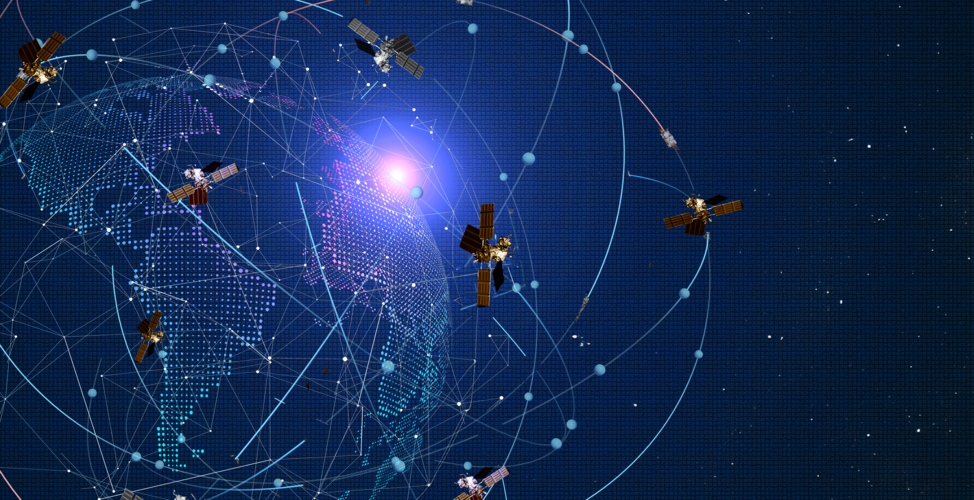
Do you want to help shape the future of European satellite navigation? ESA is issuing an open call via OSIP for companies and researchers to help identify future navigation demonstrators and disruptive technologies that will shape the landscape of satellite navigation in the coming decades.
ZABAGED® - nová verze Katalogu objektů ZABAGED®
8.7.2024 13:36 ČÚZK - Geoportál ZABAGED® - nová verze Katalogu objektů ZABAGED®Koncem června byla vydána nová verze 4.3 Katalogu objektů ZABAGED®. Hlavní změnou je rozšíření obsahu ZABAGED® o tři typy objektů: Cizí zastupitelský úřad – definiční bod (FUC46), Ptačí oblast (FA214) a Evropsky významná lokalita (FA213). Více informací v dokumentu Změny v Katalogu objektů ZABAGED® verze 4.3.
ZABAGED® - nová verze Katalogu objektů ZABAGED®
8.7.2024 13:36 ČÚZK - Geoportál ZABAGED® - nová verze Katalogu objektů ZABAGED®Koncem června byla vydána nová verze 4.3 Katalogu objektů ZABAGED®. Hlavní změnou je rozšíření obsahu ZABAGED® o tři typy objektů: Cizí zastupitelský úřad – definiční bod (FUC46), Ptačí oblast (FA214) a Evropsky významná lokalita (FA213). Více informací v dokumentu Změny v Katalogu objektů ZABAGED® verze 4.3.
ZABAGED® - nová verze Katalogu objektů ZABAGED®
8.7.2024 13:36 ČÚZK - Geoportál ZABAGED® - nová verze Katalogu objektů ZABAGED®Koncem června byla vydána nová verze 4.3 Katalogu objektů ZABAGED®. Hlavní změnou je rozšíření obsahu ZABAGED® o tři typy objektů: Cizí zastupitelský úřad – definiční bod (FUC46), Ptačí oblast (FA214) a Evropsky významná lokalita (FA213). Více informací v dokumentu Změny v Katalogu objektů ZABAGED® verze 4.3.
ZABAGED® - nová verze Katalogu objektů ZABAGED®
8.7.2024 13:36 ČÚZK - Geoportál ZABAGED® - nová verze Katalogu objektů ZABAGED®Koncem června byla vydána nová verze 4.3 Katalogu objektů ZABAGED®. Hlavní změnou je rozšíření obsahu ZABAGED® o tři typy objektů: Cizí zastupitelský úřad – definiční bod (FUC46), Ptačí oblast (FA214) a Evropsky významná lokalita (FA213). Více informací v dokumentu Změny v Katalogu objektů ZABAGED® verze 4.3.
ZABAGED® - nová verze Katalogu objektů ZABAGED®
8.7.2024 13:36 ČÚZK - Geoportál ZABAGED® - nová verze Katalogu objektů ZABAGED®Koncem června byla vydána nová verze 4.3 Katalogu objektů ZABAGED®. Hlavní změnou je rozšíření obsahu ZABAGED® o tři typy objektů: Cizí zastupitelský úřad – definiční bod (FUC46), Ptačí oblast (FA214) a Evropsky významná lokalita (FA213). Více informací v dokumentu Změny v Katalogu objektů ZABAGED® verze 4.3.
ZABAGED® - nová verze Katalogu objektů ZABAGED®
8.7.2024 13:36 ČÚZK - Geoportál ZABAGED® - nová verze Katalogu objektů ZABAGED®Koncem června byla vydána nová verze 4.3 Katalogu objektů ZABAGED®. Hlavní změnou je rozšíření obsahu ZABAGED® o tři typy objektů: Cizí zastupitelský úřad – definiční bod (FUC46), Ptačí oblast (FA214) a Evropsky významná lokalita (FA213). Více informací v dokumentu Změny v Katalogu objektů ZABAGED® verze 4.3.
ZABAGED® - nová verze Katalogu objektů ZABAGED®
8.7.2024 13:36 ČÚZK - Geoportál ZABAGED® - nová verze Katalogu objektů ZABAGED®Koncem června byla vydána nová verze 4.3 Katalogu objektů ZABAGED®. Hlavní změnou je rozšíření obsahu ZABAGED® o tři typy objektů: Cizí zastupitelský úřad – definiční bod (FUC46), Ptačí oblast (FA214) a Evropsky významná lokalita (FA213). Více informací v dokumentu Změny v Katalogu objektů ZABAGED® verze 4.3.
ZABAGED® - nová verze Katalogu objektů ZABAGED®
8.7.2024 13:36 ČÚZK - Geoportál ZABAGED® - nová verze Katalogu objektů ZABAGED®Koncem června byla vydána nová verze 4.3 Katalogu objektů ZABAGED®. Hlavní změnou je rozšíření obsahu ZABAGED® o tři typy objektů: Cizí zastupitelský úřad – definiční bod (FUC46), Ptačí oblast (FA214) a Evropsky významná lokalita (FA213). Více informací v dokumentu Změny v Katalogu objektů ZABAGED® verze 4.3.
ZABAGED® - nová verze Katalogu objektů ZABAGED®
8.7.2024 13:36 ČÚZK - Geoportál ZABAGED® - nová verze Katalogu objektů ZABAGED®Koncem června byla vydána nová verze 4.3 Katalogu objektů ZABAGED®. Hlavní změnou je rozšíření obsahu ZABAGED® o tři typy objektů: Cizí zastupitelský úřad – definiční bod (FUC46), Ptačí oblast (FA214) a Evropsky významná lokalita (FA213). Více informací v dokumentu Změny v Katalogu objektů ZABAGED® verze 4.3.
ZABAGED® - nová verze Katalogu objektů ZABAGED®
8.7.2024 13:36 ČÚZK - Geoportál ZABAGED® - nová verze Katalogu objektů ZABAGED®Koncem června byla vydána nová verze 4.3 Katalogu objektů ZABAGED®. Hlavní změnou je rozšíření obsahu ZABAGED® o tři typy objektů: Cizí zastupitelský úřad – definiční bod (FUC46), Ptačí oblast (FA214) a Evropsky významná lokalita (FA213). Více informací v dokumentu Změny v Katalogu objektů ZABAGED® verze 4.3.
ZABAGED® - nová verze Katalogu objektů ZABAGED®
8.7.2024 13:36 ČÚZK - Geoportál ZABAGED® - nová verze Katalogu objektů ZABAGED®Koncem června byla vydána nová verze 4.3 Katalogu objektů ZABAGED®. Hlavní změnou je rozšíření obsahu ZABAGED® o tři typy objektů: Cizí zastupitelský úřad – definiční bod (FUC46), Ptačí oblast (FA214) a Evropsky významná lokalita (FA213). Více informací v dokumentu Změny v Katalogu objektů ZABAGED® verze 4.3.
ZABAGED® - nová verze Katalogu objektů ZABAGED®
8.7.2024 13:36 ČÚZK - Geoportál ZABAGED® - nová verze Katalogu objektů ZABAGED®Koncem června byla vydána nová verze 4.3 Katalogu objektů ZABAGED®. Hlavní změnou je rozšíření obsahu ZABAGED® o tři typy objektů: Cizí zastupitelský úřad – definiční bod (FUC46), Ptačí oblast (FA214) a Evropsky významná lokalita (FA213). Více informací v dokumentu Změny v Katalogu objektů ZABAGED® verze 4.3.
ZABAGED® - nová verze Katalogu objektů ZABAGED®
8.7.2024 13:36 ČÚZK - Geoportál ZABAGED® - nová verze Katalogu objektů ZABAGED®Koncem června byla vydána nová verze 4.3 Katalogu objektů ZABAGED®. Hlavní změnou je rozšíření obsahu ZABAGED® o tři typy objektů: Cizí zastupitelský úřad – definiční bod (FUC46), Ptačí oblast (FA214) a Evropsky významná lokalita (FA213). Více informací v dokumentu Změny v Katalogu objektů ZABAGED® verze 4.3.
ZABAGED® - nová verze Katalogu objektů ZABAGED®
8.7.2024 13:36 ČÚZK - Geoportál ZABAGED® - nová verze Katalogu objektů ZABAGED®Koncem června byla vydána nová verze 4.3 Katalogu objektů ZABAGED®. Hlavní změnou je rozšíření obsahu ZABAGED® o tři typy objektů: Cizí zastupitelský úřad – definiční bod (FUC46), Ptačí oblast (FA214) a Evropsky významná lokalita (FA213). Více informací v dokumentu Změny v Katalogu objektů ZABAGED® verze 4.3.
ZABAGED® - nová verze Katalogu objektů ZABAGED®
8.7.2024 13:36 ČÚZK - Geoportál ZABAGED® - nová verze Katalogu objektů ZABAGED®Koncem června byla vydána nová verze 4.3 Katalogu objektů ZABAGED®. Hlavní změnou je rozšíření obsahu ZABAGED® o tři typy objektů: Cizí zastupitelský úřad – definiční bod (FUC46), Ptačí oblast (FA214) a Evropsky významná lokalita (FA213). Více informací v dokumentu Změny v Katalogu objektů ZABAGED® verze 4.3.
ZABAGED® - nová verze Katalogu objektů ZABAGED®
8.7.2024 13:36 ČÚZK - Geoportál ZABAGED® - nová verze Katalogu objektů ZABAGED®Koncem června byla vydána nová verze 4.3 Katalogu objektů ZABAGED®. Hlavní změnou je rozšíření obsahu ZABAGED® o tři typy objektů: Cizí zastupitelský úřad – definiční bod (FUC46), Ptačí oblast (FA214) a Evropsky významná lokalita (FA213). Více informací v dokumentu Změny v Katalogu objektů ZABAGED® verze 4.3.
ZABAGED® - nová verze Katalogu objektů ZABAGED®
8.7.2024 13:36 ČÚZK - Geoportál ZABAGED® - nová verze Katalogu objektů ZABAGED®Koncem června byla vydána nová verze 4.3 Katalogu objektů ZABAGED®. Hlavní změnou je rozšíření obsahu ZABAGED® o tři typy objektů: Cizí zastupitelský úřad – definiční bod (FUC46), Ptačí oblast (FA214) a Evropsky významná lokalita (FA213). Více informací v dokumentu Změny v Katalogu objektů ZABAGED® verze 4.3.
ZABAGED® - nová verze Katalogu objektů ZABAGED®
8.7.2024 13:36 ČÚZK - Geoportál ZABAGED® - nová verze Katalogu objektů ZABAGED®Koncem června byla vydána nová verze 4.3 Katalogu objektů ZABAGED®. Hlavní změnou je rozšíření obsahu ZABAGED® o tři typy objektů: Cizí zastupitelský úřad – definiční bod (FUC46), Ptačí oblast (FA214) a Evropsky významná lokalita (FA213). Více informací v dokumentu Změny v Katalogu objektů ZABAGED® verze 4.3.
ZABAGED® - nová verze Katalogu objektů ZABAGED®
8.7.2024 13:36 ČÚZK - Geoportál ZABAGED® - nová verze Katalogu objektů ZABAGED®Koncem června byla vydána nová verze 4.3 Katalogu objektů ZABAGED®. Hlavní změnou je rozšíření obsahu ZABAGED® o tři typy objektů: Cizí zastupitelský úřad – definiční bod (FUC46), Ptačí oblast (FA214) a Evropsky významná lokalita (FA213). Více informací v dokumentu Změny v Katalogu objektů ZABAGED® verze 4.3.
ZABAGED® - nová verze Katalogu objektů ZABAGED®
8.7.2024 13:36 ČÚZK - Geoportál ZABAGED® - nová verze Katalogu objektů ZABAGED®Koncem června byla vydána nová verze 4.3 Katalogu objektů ZABAGED®. Hlavní změnou je rozšíření obsahu ZABAGED® o tři typy objektů: Cizí zastupitelský úřad – definiční bod (FUC46), Ptačí oblast (FA214) a Evropsky významná lokalita (FA213). Více informací v dokumentu Změny v Katalogu objektů ZABAGED® verze 4.3.
ZABAGED® - nová verze Katalogu objektů ZABAGED®
8.7.2024 13:36 ČÚZK - Geoportál ZABAGED® - nová verze Katalogu objektů ZABAGED®Koncem června byla vydána nová verze 4.3 Katalogu objektů ZABAGED®. Hlavní změnou je rozšíření obsahu ZABAGED® o tři typy objektů: Cizí zastupitelský úřad – definiční bod (FUC46), Ptačí oblast (FA214) a Evropsky významná lokalita (FA213). Více informací v dokumentu Změny v Katalogu objektů ZABAGED® verze 4.3.
ZABAGED® - nová verze Katalogu objektů ZABAGED®
8.7.2024 13:36 ČÚZK - Geoportál ZABAGED® - nová verze Katalogu objektů ZABAGED®Koncem června byla vydána nová verze 4.3 Katalogu objektů ZABAGED®. Hlavní změnou je rozšíření obsahu ZABAGED® o tři typy objektů: Cizí zastupitelský úřad – definiční bod (FUC46), Ptačí oblast (FA214) a Evropsky významná lokalita (FA213). Více informací v dokumentu Změny v Katalogu objektů ZABAGED® verze 4.3.
Rada/odborný rada - ředitel/ka Katastrálního pracoviště Hustopeče
8.7.2024 12:43 ČÚZK - volná místa Katastrální úřad pro Jihomoravský kraj Katastrální pracoviště Hustopeče vypisuje výběrové řízení na místo Rada/odborný rada - ředitel/ka Katastrálního pracoviště HustopečeRada/odborný rada - ředitel/ka Katastrálního pracoviště Hustopeče
8.7.2024 12:43 ČÚZK - předpisy a opatření Katastrální úřad pro Jihomoravský kraj Katastrální pracoviště Hustopečevypisuje výběrové řízení na místo
Rada/odborný rada - ředitel/ka Katastrálního pracoviště Hustopeče
Rada/odborný rada - ředitel/ka Katastrálního pracoviště Hustopeče
8.7.2024 12:43 ČÚZK /Urady/Katastralni-urady/Katastralni-urady/Katastralni-urad-pro-Jihomoravsky-kraj/Uredni-deska/Oznameni-a-jina-uredni-sdeleni/Volna-mista/DMS/Rada-odborny-rada-reditel-ka-Katastralniho-pracoviHranice v názorech současné společnosti
8.7.2024 12:21 GISportal.cz
Zajímá-li vás historie a její znázorňování v mapách, budeme velice rádi, když se zapojíte do aktuálně probíhajícího šetření názorů o historických hranicích v Českých zemích. Šetření probíhá v rámci projektu Hranice jako kulturněhistorický fenomén. V tomto konkrétním šetření s kolegy zjišťujeme, jaké jsou názory občanů ČR všech věkových skupin na průběh různých druhů hranic. Pro bližší informace prosím navštivte odkaz […]
The post Hranice v názorech současné společnosti appeared first on GISportal.cz.
Hranice v názorech současné společnosti
8.7.2024 12:21 GISportal.cz
Zajímá-li vás historie a její znázorňování v mapách, budeme velice rádi, když se zapojíte do aktuálně probíhajícího šetření názorů o historických hranicích v Českých zemích. Šetření probíhá v rámci projektu Hranice jako kulturněhistorický fenomén. V tomto konkrétním šetření s kolegy zjišťujeme, jaké jsou názory občanů ČR všech věkových skupin na průběh různých druhů hranic. Pro bližší informace prosím navštivte odkaz […]
The post Hranice v názorech současné společnosti appeared first on GISportal.cz.
Dronedge 2024 – 9. ročník konference Aliance pro bezpilotní letecký průmysl
8.7.2024 12:09 UAVA Přijměte pozvání na letošní již 9. ročník konference Aliance pro bezpilotní letecký průmysl – Dronedge 2024. Datum: 11.9.2024 Místo: kino Dlabačov, Praha 6 Registrace ZDE Zvýhodněná cena 1000 Kč do 30.8.2024, od 31.8.-10.9.2024 plná cena 1300 Kč.Dronedge 2024 – 9. ročník konference Aliance pro bezpilotní letecký průmysl
8.7.2024 12:09 UAVA Přijměte pozvání na letošní již 9. ročník konference Aliance pro bezpilotní letecký průmysl – Dronedge 2024. Datum: 11.9.2024 Místo: kino Dlabačov, Praha 6 Registrace bude spuštěna 11. července 2024.Dronedge 2024 – 9. ročník konference Aliance pro bezpilotní letecký průmysl
8.7.2024 12:09 UAVA Přijměte pozvání na letošní již 9. ročník konference Aliance pro bezpilotní letecký průmysl – Dronedge 2024. Datum: 11.9.2024 Místo: kino Dlabačov, Praha 6 Registrace ZDELetní pauza
8.7.2024 9:35 GISportal.cz
Vážené čtenářky, vážení čtenáři, podporovatelky, podporovatelé, inzerentky a inzerenti, přejeme vám všem klidné léto a dovolené. Zkuste si alespoň na pár dní nekontrolovat emaily a odpočinout si někde v přírodě. My budeme dělat to samé. GISportal.cz přechází na „letní režim“, tzn., že pokud dostaneme nějakou pozvánku na konferenci, či nabídku práce, tak je rádi zveřejníme, […]
The post Letní pauza appeared first on GISportal.cz.
Letní pauza
8.7.2024 9:35 GISportal.cz
Vážené čtenářky, vážení čtenáři, podporovatelky, podporovatelé, inzerentky a inzerenti, přejeme vám všem klidné léto a dovolené. Zkuste si alespoň na pár dní nekontrolovat emaily a odpočinout si někde v přírodě. My budeme dělat to samé. GISportal.cz přechází na „letní režim“, tzn., že pokud dostaneme nějakou pozvánku na konferenci, či nabídku práce, tak je rádi zveřejníme, […]
The post Letní pauza appeared first on GISportal.cz.
Konferencia OSSConf 2024 (report)
8.7.2024 8:30 GISportal.cz
V dňoch 2.7. – 4.7.2024 sa na Fakulte riadenia a informatiky Žilinskej univerzity uskutočnil 12. ročník konferencie OSSConf. Konferencia je primárne venovaná otvorenému softvéru vo vzdelávaní, výskume a IT riešeniach. Aktuálny 12. ročník zastrešoval šesť tematických blokov: LaTeX, R a ich priatelia, Open AI, OSS vo vzdelávaní, Open hardvér, Vývoj OSS, Open GIS & Open […]
The post Konferencia OSSConf 2024 (report) appeared first on GISportal.cz.
Uzavření objektu KP Česká Lípa dne 23. 7. 2024
8.7.2024 8:30 ČÚZK /Urady/Katastralni-urady/Katastralni-urady/Katastralni-urad-pro-Liberecky-kraj/Katastralni-pracoviste/KP-Ceska-Lipa/O-uradu/Aktuality/Uzavreni-objektu-KP-Ceska-Lipa-dne-23-7-2024Uzavření objektu KP Česká Lípa dne 23. 7. 2024
8.7.2024 8:30 ČÚZK - předpisy a opatření Katastrální úřad pro Liberecký kraj - Katastrální pracoviště Česká Lípa zveřejnil novou aktualitu:Uzavření objektu KP Česká Lípa dne 23. 7. 2024
8.7.2024 8:30 ČÚZK - předpisy a opatření Katastrální úřad pro Liberecký kraj - Katastrální pracoviště Česká Lípa zveřejnil novou aktualitu:Uzavření objektu KP Česká Lípa dne 23. 7. 2024
8.7.2024 8:30 ČÚZK - předpisy a opatření Katastrální úřad pro Liberecký kraj - Katastrální pracoviště Česká Lípa zveřejnil novou aktualitu:🚨 Důležité: Změna procesu nákupu Autodesk licencí od 16. září 2024
8.7.2024 8:00 Adeon
Autodesk oznamuje významnou aktualizaci v procesu nákupu licencí. Tato změna ovlivní způsob, jakým budete získávat a spravovat vaše Autodesk předplatné. […]
The post 🚨 Důležité: Změna procesu nákupu Autodesk licencí od 16. září 2024 appeared first on Adeon CZ.
🚨 Důležité: Změna procesu nákupu Autodesk licencí od 16. září 2024
8.7.2024 8:00 AdeonAutodesk oznamuje významnou aktualizaci v procesu nákupu licencí. Tato změna ovlivní způsob, jakým budete získávat a spravovat vaše Autodesk předplatné. […]
The post 🚨 Důležité: Změna procesu nákupu Autodesk licencí od 16. září 2024 appeared first on Adeon CZ.
🚨 Důležité: Změna procesu nákupu Autodesk licencí od 16. září 2024
8.7.2024 8:00 Adeon
Autodesk oznamuje významnou aktualizaci v procesu nákupu licencí. Tato změna ovlivní způsob, jakým budete získávat a spravovat vaše Autodesk předplatné. […]
The post 🚨 Důležité: Změna procesu nákupu Autodesk licencí od 16. září 2024 appeared first on Adeon CZ.
TurboPDF CZ v akční ceně – jen do 12. 7. 2024
6.7.2024 14:03 ŠPINAR - softwareDovolujeme si Vám nabídnout program TurboPDF CZ pro otevírání, editaci, správu a převod Vašich PDF dokumentů.
The post TurboPDF CZ v akční ceně – jen do 12. 7. 2024 appeared first on ŠPINAR – software.
SC Consultation Vote
5.7.2024 16:53 buildingSMART.orgSC Consultation Vote test
The post SC Consultation Vote appeared first on buildingSMART International.
The Information Delivery Specification (IDS) Final Standard has been reviewed and endorsed by the Standards Committee.
5.7.2024 13:10 buildingSMART.orgReport: LinkOutcome report: Link The Information Delivery Specification (IDS) Final Standard has been approved by the Standards Committee Executive, after a unanimous positive voting result from the Standards committee. The…
The post The Information Delivery Specification (IDS) Final Standard has been reviewed and endorsed by the Standards Committee. appeared first on buildingSMART International.
The “openBIM-based Workflows and Exchanges for Electric Power Transmission and Distribution” Activity Proposal has been reviewed and endorsed by the Standards Committee.
5.7.2024 13:10 buildingSMART.orgReport: LinkOutcome report: Link The “openBIM for Transmission and Distribution” Activity Proposal has been reviewed and endorsed by the Standards Committee.The Standards Committee feedback and results can be viewed using…
The post The “openBIM-based Workflows and Exchanges for Electric Power Transmission and Distribution” Activity Proposal has been reviewed and endorsed by the Standards Committee. appeared first on buildingSMART International.
The “definition of openBIM-based Workflows and Exchanges for Electric Power Transmission and Distribution” Activity Proposal is now out for review by the Standards Committee.
5.7.2024 13:10 buildingSMART.orgVote closing date: 10 May 2024Report: Link The “openBIM-based Workflows and Exchanges for Electric Power Transmission and Distribution” Activity Proposal addresses examining the requirements of high-voltage electrical power transmission and…
The post The “definition of openBIM-based Workflows and Exchanges for Electric Power Transmission and Distribution” Activity Proposal is now out for review by the Standards Committee. appeared first on buildingSMART International.
The “Use case 2.06 – Collision check & mechanical integration of medium voltage distribution systems in a building” Activity Proposal has been reviewed and has been endorsed by the Standards Committee.
5.7.2024 13:10 buildingSMART.orgReport: LinkOutcome report: Link The openBIM for Electrical Engineering Activity Proposal has been reviewed and endorsed by the Standards Committee. The Standards Committee feedback and results can be viewed using…
The post The “Use case 2.06 – Collision check & mechanical integration of medium voltage distribution systems in a building” Activity Proposal has been reviewed and has been endorsed by the Standards Committee. appeared first on buildingSMART International.
The Information Delivery Specification (IDS) Final Standard is now out for review by the Standards Committee.
5.7.2024 13:10 buildingSMART.orgVote closing date: 30 May 2024Report: Link The Information Delivery Specification (IDS) Final Standard has been issued to the Standards Committee for their review and feedback. The vote closes 30th…
The post The Information Delivery Specification (IDS) Final Standard is now out for review by the Standards Committee. appeared first on buildingSMART International.
The “Use case 2.06 – Collision check & mechanical integration of medium voltage distribution systems in a building” Activity Proposal is now out for review by the Standards Committee.
5.7.2024 13:10 buildingSMART.orgVote closing date: 14 Mar 2024Report: Link The “Use case 2.06 – Collision check & mechanical integration of medium voltage distribution systems in a building” Activity Proposal is now out…
The post The “Use case 2.06 – Collision check & mechanical integration of medium voltage distribution systems in a building” Activity Proposal is now out for review by the Standards Committee. appeared first on buildingSMART International.
Post title
5.7.2024 13:10 buildingSMART.orgContent
The post Post title appeared first on buildingSMART International.
Earth from Space: Madeira
5.7.2024 10:00 ESA Observing the Earth Image:
The Copernicus Sentinel-2 mission captured a rare, cloud-free image over the Portuguese archipelago of Madeira in the North Atlantic Ocean.
Image:
The Copernicus Sentinel-2 mission captured a rare, cloud-free image over the Portuguese archipelago of Madeira in the North Atlantic Ocean.
EarthCARE offers a sneak peek into Earth’s energy balance
4.7.2024 17:20 ESA Observing the Earth
Offering a foretaste of what’s to come once it is fully commissioned, ESA’s EarthCARE satellite has returned the first images from its broadband radiometer instrument. These initial images offer a tantalising glimpse into the intricacies of our planet’s energy balance – a delicate balance that governs our climate.
ZABAGED® - aktualizace
4.7.2024 13:40 ČÚZK - Geoportál ZABAGED® - aktualizaceZačátkem července 2024 byly zpřístupněny uživatelům zaktualizované sady těchto typů objektů ZABAGED®: definiční body adresních míst, hranice správních jednotek a katastrálních území společně s definičními body správních celků, včetně aktualizace státní hranice, železniční tratě a vlečky, železniční stanice a zastávky včetně jejich areálů, evidované silnice a dálnice a prvky ležící na nich – křižovatky úrovňové a mimoúrovňové, mosty, podjezdy, tunely, parkoviště, odpočívky a uzlové body silniční sítě, vodní toky, rozvodnice, elektrické vedení přenosové i distribuční, elektrické stožáry, rozvodny, transformovny, protihlukové zdi. Podle Registru výškových objektů byly vybraným objektům přiřazeny výšky. Průběžně byly během celého období aktualizovány definiční čáry ulic podle návrhu obcí současně s definičními body náměstí.
Ve 2. čtvrtletí 2024 byla dokončena plošná aktualizace ZABAGED® na celém území mapových listů Základní topografické mapy ČR 1:50 000: 0105-A, 0105-C, 0204-B, 0403-C, 0404-A, 0407-C, 0407-D, 0503-A, 0505-A, 0609-B, 0610-A, 0703-C, 0704-C, 0707-A, 0803-B, 0804-A a 0804-B.
Ve 2. čtvrtletí 2024 byly v rámci aktualizace stavebních objektů v ZABAGED® (na podkladě existující kresby v ISKN, Ortofota ČR, výstupů z dat leteckého laserového skenování a dalších dostupných zdrojů) aktualizovány budovy a další stavební objekty v okresech: Blansko, Břeclav, Frýdek-Místek, Hodonín, Cheb, Jablonec nad Nisou, Kladno, Klatovy, Kutná Hora, Litoměřice, Louny, Náchod, Ostrava-město, Plzeň-město, Plzeň-sever, Písek, Prachatice, Prostějov, Příbram, Strakonice, Tachov, Trutnov, Ústí nad Labem a Vsetín.
Více informací o stavu aktualizace je uvedeno v tabulce Informace o produktu, v oddíle Aktualizační cyklus - stav aktualizace.
ZABAGED® - aktualizace
4.7.2024 13:40 ČÚZK - Geoportál ZABAGED® - aktualizaceZačátkem července 2024 byly zpřístupněny uživatelům zaktualizované sady těchto typů objektů ZABAGED®: definiční body adresních míst, hranice správních jednotek a katastrálních území společně s definičními body správních celků, včetně aktualizace státní hranice, železniční tratě a vlečky, železniční stanice a zastávky včetně jejich areálů, evidované silnice a dálnice a prvky ležící na nich – křižovatky úrovňové a mimoúrovňové, mosty, podjezdy, tunely, parkoviště, odpočívky a uzlové body silniční sítě, vodní toky, rozvodnice, elektrické vedení přenosové i distribuční, elektrické stožáry, rozvodny, transformovny, protihlukové zdi. Podle Registru výškových objektů byly vybraným objektům přiřazeny výšky. Průběžně byly během celého období aktualizovány definiční čáry ulic podle návrhu obcí současně s definičními body náměstí.
Ve 2. čtvrtletí 2024 byla dokončena plošná aktualizace ZABAGED® na celém území mapových listů Základní topografické mapy ČR 1:50 000: 0105-A, 0105-C, 0204-B, 0403-C, 0404-A, 0407-C, 0407-D, 0503-A, 0505-A, 0609-B, 0610-A, 0703-C, 0704-C, 0707-A, 0803-B, 0804-A a 0804-B.
Ve 2. čtvrtletí 2024 byly v rámci aktualizace stavebních objektů v ZABAGED® (na podkladě existující kresby v ISKN, Ortofota ČR, výstupů z dat leteckého laserového skenování a dalších dostupných zdrojů) aktualizovány budovy a další stavební objekty v okresech: Blansko, Břeclav, Frýdek-Místek, Hodonín, Cheb, Jablonec nad Nisou, Kladno, Klatovy, Kutná Hora, Litoměřice, Louny, Náchod, Ostrava-město, Plzeň-město, Plzeň-sever, Písek, Prachatice, Prostějov, Příbram, Strakonice, Tachov, Trutnov, Ústí nad Labem a Vsetín.
Více informací o stavu aktualizace je uvedeno v tabulce Informace o produktu, v oddíle Aktualizační cyklus - stav aktualizace.
ZABAGED® - aktualizace
4.7.2024 13:40 ČÚZK - Geoportál ZABAGED® - aktualizaceZačátkem července 2024 byly zpřístupněny uživatelům zaktualizované sady těchto typů objektů ZABAGED®: definiční body adresních míst, hranice správních jednotek a katastrálních území společně s definičními body správních celků, včetně aktualizace státní hranice, železniční tratě a vlečky, železniční stanice a zastávky včetně jejich areálů, evidované silnice a dálnice a prvky ležící na nich – křižovatky úrovňové a mimoúrovňové, mosty, podjezdy, tunely, parkoviště, odpočívky a uzlové body silniční sítě, vodní toky, rozvodnice, elektrické vedení přenosové i distribuční, elektrické stožáry, rozvodny, transformovny, protihlukové zdi. Podle Registru výškových objektů byly vybraným objektům přiřazeny výšky. Průběžně byly během celého období aktualizovány definiční čáry ulic podle návrhu obcí současně s definičními body náměstí.
Ve 2. čtvrtletí 2024 byla dokončena plošná aktualizace ZABAGED® na celém území mapových listů Základní topografické mapy ČR 1:50 000: 0105-A, 0105-C, 0204-B, 0403-C, 0404-A, 0407-C, 0407-D, 0503-A, 0505-A, 0609-B, 0610-A, 0703-C, 0704-C, 0707-A, 0803-B, 0804-A a 0804-B.
Ve 2. čtvrtletí 2024 byly v rámci aktualizace stavebních objektů v ZABAGED® (na podkladě existující kresby v ISKN, Ortofota ČR, výstupů z dat leteckého laserového skenování a dalších dostupných zdrojů) aktualizovány budovy a další stavební objekty v okresech: Blansko, Břeclav, Frýdek-Místek, Hodonín, Cheb, Jablonec nad Nisou, Kladno, Klatovy, Kutná Hora, Litoměřice, Louny, Náchod, Ostrava-město, Plzeň-město, Plzeň-sever, Písek, Prachatice, Prostějov, Příbram, Strakonice, Tachov, Trutnov, Ústí nad Labem a Vsetín.
Více informací o stavu aktualizace je uvedeno v tabulce Informace o produktu, v oddíle Aktualizační cyklus - stav aktualizace.
ZABAGED® - aktualizace
4.7.2024 13:40 ČÚZK - Geoportál ZABAGED® - aktualizaceZačátkem července 2024 byly zpřístupněny uživatelům zaktualizované sady těchto typů objektů ZABAGED®: definiční body adresních míst, hranice správních jednotek a katastrálních území společně s definičními body správních celků, včetně aktualizace státní hranice, železniční tratě a vlečky, železniční stanice a zastávky včetně jejich areálů, evidované silnice a dálnice a prvky ležící na nich – křižovatky úrovňové a mimoúrovňové, mosty, podjezdy, tunely, parkoviště, odpočívky a uzlové body silniční sítě, vodní toky, rozvodnice, elektrické vedení přenosové i distribuční, elektrické stožáry, rozvodny, transformovny, protihlukové zdi. Podle Registru výškových objektů byly vybraným objektům přiřazeny výšky. Průběžně byly během celého období aktualizovány definiční čáry ulic podle návrhu obcí současně s definičními body náměstí.
Ve 2. čtvrtletí 2024 byla dokončena plošná aktualizace ZABAGED® na celém území mapových listů Základní topografické mapy ČR 1:50 000: 0105-A, 0105-C, 0204-B, 0403-C, 0404-A, 0407-C, 0407-D, 0503-A, 0505-A, 0609-B, 0610-A, 0703-C, 0704-C, 0707-A, 0803-B, 0804-A a 0804-B.
Ve 2. čtvrtletí 2024 byly v rámci aktualizace stavebních objektů v ZABAGED® (na podkladě existující kresby v ISKN, Ortofota ČR, výstupů z dat leteckého laserového skenování a dalších dostupných zdrojů) aktualizovány budovy a další stavební objekty v okresech: Blansko, Břeclav, Frýdek-Místek, Hodonín, Cheb, Jablonec nad Nisou, Kladno, Klatovy, Kutná Hora, Litoměřice, Louny, Náchod, Ostrava-město, Plzeň-město, Plzeň-sever, Písek, Prachatice, Prostějov, Příbram, Strakonice, Tachov, Trutnov, Ústí nad Labem a Vsetín.
Více informací o stavu aktualizace je uvedeno v tabulce Informace o produktu, v oddíle Aktualizační cyklus - stav aktualizace.
ZABAGED® - aktualizace
4.7.2024 13:40 ČÚZK - Geoportál ZABAGED® - aktualizaceZačátkem července 2024 byly zpřístupněny uživatelům zaktualizované sady těchto typů objektů ZABAGED®: definiční body adresních míst, hranice správních jednotek a katastrálních území společně s definičními body správních celků, včetně aktualizace státní hranice, železniční tratě a vlečky, železniční stanice a zastávky včetně jejich areálů, evidované silnice a dálnice a prvky ležící na nich – křižovatky úrovňové a mimoúrovňové, mosty, podjezdy, tunely, parkoviště, odpočívky a uzlové body silniční sítě, vodní toky, rozvodnice, elektrické vedení přenosové i distribuční, elektrické stožáry, rozvodny, transformovny, protihlukové zdi. Podle Registru výškových objektů byly vybraným objektům přiřazeny výšky. Průběžně byly během celého období aktualizovány definiční čáry ulic podle návrhu obcí současně s definičními body náměstí.
Ve 2. čtvrtletí 2024 byla dokončena plošná aktualizace ZABAGED® na celém území mapových listů Základní topografické mapy ČR 1:50 000: 0105-A, 0105-C, 0204-B, 0403-C, 0404-A, 0407-C, 0407-D, 0503-A, 0505-A, 0609-B, 0610-A, 0703-C, 0704-C, 0707-A, 0803-B, 0804-A a 0804-B.
Ve 2. čtvrtletí 2024 byly v rámci aktualizace stavebních objektů v ZABAGED® (na podkladě existující kresby v ISKN, Ortofota ČR, výstupů z dat leteckého laserového skenování a dalších dostupných zdrojů) aktualizovány budovy a další stavební objekty v okresech: Blansko, Břeclav, Frýdek-Místek, Hodonín, Cheb, Jablonec nad Nisou, Kladno, Klatovy, Kutná Hora, Litoměřice, Louny, Náchod, Ostrava-město, Plzeň-město, Plzeň-sever, Písek, Prachatice, Prostějov, Příbram, Strakonice, Tachov, Trutnov, Ústí nad Labem a Vsetín.
Více informací o stavu aktualizace je uvedeno v tabulce Informace o produktu, v oddíle Aktualizační cyklus - stav aktualizace.
ZABAGED® - aktualizace
4.7.2024 13:40 ČÚZK - Geoportál ZABAGED® - aktualizaceZačátkem července 2024 byly zpřístupněny uživatelům zaktualizované sady těchto typů objektů ZABAGED®: definiční body adresních míst, hranice správních jednotek a katastrálních území společně s definičními body správních celků, včetně aktualizace státní hranice, železniční tratě a vlečky, železniční stanice a zastávky včetně jejich areálů, evidované silnice a dálnice a prvky ležící na nich – křižovatky úrovňové a mimoúrovňové, mosty, podjezdy, tunely, parkoviště, odpočívky a uzlové body silniční sítě, vodní toky, rozvodnice, elektrické vedení přenosové i distribuční, elektrické stožáry, rozvodny, transformovny, protihlukové zdi. Podle Registru výškových objektů byly vybraným objektům přiřazeny výšky. Průběžně byly během celého období aktualizovány definiční čáry ulic podle návrhu obcí současně s definičními body náměstí.
Ve 2. čtvrtletí 2024 byla dokončena plošná aktualizace ZABAGED® na celém území mapových listů Základní topografické mapy ČR 1:50 000: 0105-A, 0105-C, 0204-B, 0403-C, 0404-A, 0407-C, 0407-D, 0503-A, 0505-A, 0609-B, 0610-A, 0703-C, 0704-C, 0707-A, 0803-B, 0804-A a 0804-B.
Ve 2. čtvrtletí 2024 byly v rámci aktualizace stavebních objektů v ZABAGED® (na podkladě existující kresby v ISKN, Ortofota ČR, výstupů z dat leteckého laserového skenování a dalších dostupných zdrojů) aktualizovány budovy a další stavební objekty v okresech: Blansko, Břeclav, Frýdek-Místek, Hodonín, Cheb, Jablonec nad Nisou, Kladno, Klatovy, Kutná Hora, Litoměřice, Louny, Náchod, Ostrava-město, Plzeň-město, Plzeň-sever, Písek, Prachatice, Prostějov, Příbram, Strakonice, Tachov, Trutnov, Ústí nad Labem a Vsetín.
Více informací o stavu aktualizace je uvedeno v tabulce Informace o produktu, v oddíle Aktualizační cyklus - stav aktualizace.



